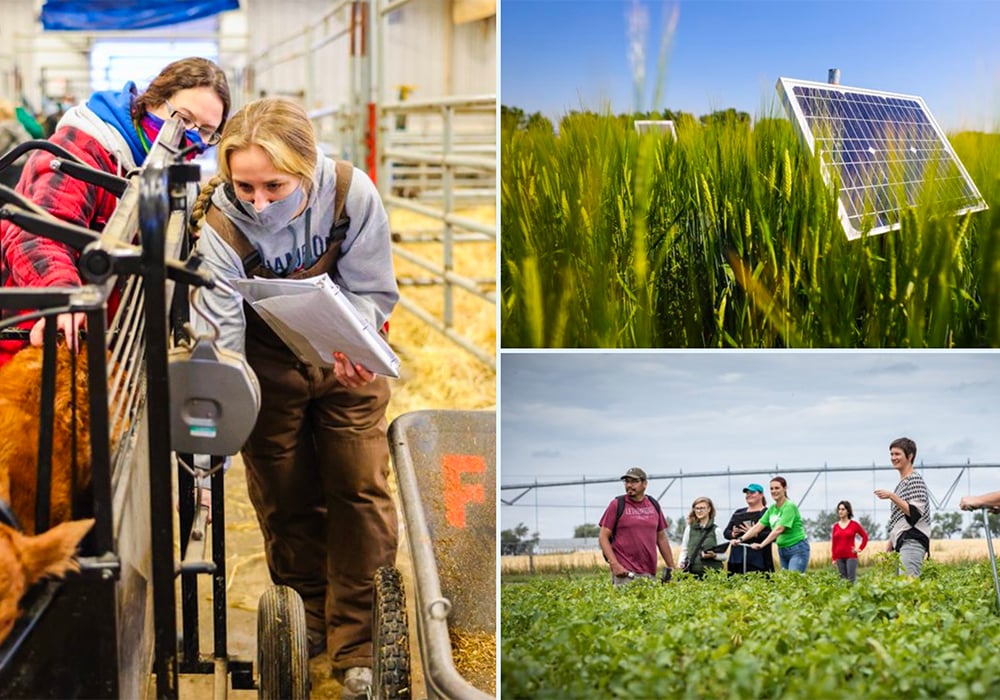If two heads are better than one, how about two colleges?
Olds College and Lethbridge College in Alberta have signed a memorandum of understanding that will put that theory to the test.
The three-year agreement “is really our two institutions recognizing that we both have a significant role to play in supporting the agriculture sector within our province and within our country,” said Stuart Cullum, president of Olds College.
“And by working together and sharing information, we’re able to enhance our capacity and capabilities that support and really benefit the agriculture sector.”
Read Also

Farming Smarter receives financial boost from Alberta government for potato research
Farming Smarter near Lethbridge got a boost to its research equipment, thanks to the Alberta government’s increase in funding for research associations.
The two colleges are launching the deal by becoming the first such institutions in Alberta to sign on to the United Nations Sustainable Development Goals (SDGs). These are 17 global objectives created in 2015 that aim to end things such as extreme poverty by 2030.
“Both colleges are committed to supporting sustainable practices, including the stated (goals) of zero hunger; decent work and economic growth; industry, innovation and infrastructure; responsible consumption and production; and partnerships,” said a joint statement.
Canadian agriculture is already focused on producing more while using less, which is a key feature of sustainability the two colleges can work together to support, said Cullum.
Both colleges also have Technology Access Centres, which are funded by the federal National Sciences and Engineering Research Council of Canada (NSERC). They’re part of a national initiative that helps small- and medium-sized businesses with things such as research and development.
“Olds College and Lethbridge College will work together to identify joint projects, refer companies to each other based on the best fit with infrastructure and research expertise, and share relevant data and data networks,” said the joint statement.
“With both colleges boasting agriculture-based Technology Access Centres, which offer industry support through fee-for-service research activities, Lethbridge and Olds will work collaboratively to provide an attractive, consistent and competitive fee structure for industry partners.”
The centre at Lethbridge College is called the Integrated Agriculture Technology Centre, which has strengths in areas such as irrigation, crop production, aquaculture and greenhouse technology. It is part of the college’s Centre for Applied Research, Innovation and Entrepreneurship.
Applied research involves working with industry partners to find practical solutions to problems, said Kenny Corscadden, associate vice-president of research at Lethbridge College. Such projects typically have a short turnaround, with results expected within one year, he said.
The memorandum of understanding allows the two colleges to achieve a critical mass to better help farmers, he said. “And approaching one college really provides access to both in terms of research, but very, very collaborative in terms of projects and understanding where the farmer can benefit.”
The Technology Access Centre at Olds College is particularly strong in livestock production, said Cullum.
When two great institutions come together, the possibilities are endless! Yesterday, we announced the signing of an MOU with @LethCollege and of the United Nations Sustainable Development Goals accord. Together, we will support Alberta’s ag industry and economic recovery. pic.twitter.com/CWULpM2rdU
— Olds College (@OldsCollege) April 29, 2021
The college also has a 2,800-acre Smart Farm that acts as a living laboratory, allowing businesses, researchers and students to work with the latest cutting-edge technologies in agriculture, he added.
By working together, both colleges can avoid duplication while leveraging each other’s strengths in support of the businesses they serve, he said.
“I think what it also does is it opens up the door for other collaborations, and there’s opportunities to work with other institutions in this province as well, so what we’ve done is really established a framework that other institutions can look at to also engage in more collaborative applied research.”
Both colleges are also considering the creation of formal opportunities for students through joint education and research programs, said Cullum. “Those details are being worked out as we speak … but we absolutely intend to explore opportunities to be more collaborative.”
Contact doug.ferguson@producer.com


















